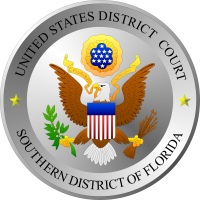Originally published on Forbes.com Aug 7th, 2013
It is easy to find material that will tell you what a great thing it is to “avoid probate”. Maureen Mangiardi’s father, Dr. Joseph Mangiardi, managed it for the bulk of his estate. According to a recent decision in US District Court for the Southern District of Florida, there was $4,577,360, mostly stocks, in an inter vivos trust and $3,857,576 in an IRA. The estate tax of $2,478,658 was to be paid out of the inter vivos trust. So the IRA could be directly split among the beneficiaries. Ms. Mangiardi’s share was 11.1 % leading me to infer that it was an equal split among the Doctor’s nine children. Now the IRS is trying to get the IRA distribution from Ms.Mangiardi to cover part of the estate tax. This is a little disturbing since Dr.Mangiardi died in 2000.
The Argument
Ms.Mangiardi was arguing that the IRS claim is barred by the statute of limitations. The Court found in favor of the IRS. The analysis is pretty lawyerly. Fortunately Charles Rubin also noticed the case and being a lawyer and all can explain it better than a CPA:
Maureen asserts two defenses. First, Code §6901 provides for the assessment and collection of taxes from a transferee with the same three year statute of limitations on assessment applicable to the estate under Code §6501, plus one extra year. Code §6901(c). The IRS did not assess taxes against Maureen within this period and never assessed under Code §6901. Instead, the IRS sought to collect the tax directly under the Code §6324 10 year estate tax lien against all gross estate assets. Maureen claimed that an assessment against her within the Code §6901 four year period was required. Unfortunately for her, other courts have previously held that the IRS can proceed to collect under Code §6324 without having to assess the transferee under Code §6901 (including one involving the same estate as the instant case, but which the court did not cite).
Got that ? Well, I wish I could make it simpler, but I’m not sure that I can. The idea is that if you get assets directly as a result of someone’s death, you may be responsible for some of the estate tax. If the people managing the pool of assets that is supposed to pay the estate taxes stretch the IRS out, that sword of Damocles continues to hang over your head.
How Bad Is This ?
Mr. Rubin thinks this decision is pretty bad and I agree with him to an extent.
The above result is bad for IRA and other beneficiaries for many reasons. First, it allows beneficiaries to be hit with estate taxes many years after death, and without knowledge that taxes were never paid and thus that the potential liability existed.
Second, this extended time period can be more than 10 years, since extensions granted to the estate extend this 10 year period. Presumably, if estate taxes are extended for 10 or 15 years under Code §6166, this extension can be tacked on to the 10 year estate tax lien period.
Lastly, it would appear that an IRA beneficiary is liable as a transferee for the full amount of IRA assets that are inherited. However, the IRA beneficiary really does not benefit by the full amount, since income taxes will have to paid by him or her on amounts withdrawn from the IRA.
It Might Not Be That Bad In Practice
If this were a case of the IRS suddenly coming after Ms.Mangiardi after a decade with a surprise assessment, it would be extremely disturbing. That is not what is going on here, though according to the Court. Ms.Mangiardi was well aware that the trust requested six extensions to pay the estate tax, pleading that it was not a good time to sell the stocks. According to the decision:
The Estate stated its intention to hold the securities until their value increased, at which time it would liquidate them and use the proceeds to pay the federal estate tax due. In fact, however, the Estate did not simply hold onto the securities and wait for them to increase in value. Instead, the co-trustees, including Defendant, engaged in active trading of securities throughout the periods of extension, while paying themselves hundreds of thousands of dollars in fees.
It Is Still Troubling Or Why Probate Might Not Be Such A Bad Thing
If an estate is going to be taxable, it might not be such a bad thing to have all the assets concentrated, get the taxes and other debts and expenses paid and distribute the balance. Although it is not what is happening in this case, in principle, someone who receives property outside of probate might be tagged with a surprise estate tax assessment long after their windfall.
You can follow me on twitter @peterreillycpa.
Afternote:
I’m surprised that this decision did not get more coverage. Robert Wood wrote about an earlier round between the estate and the IRS in 2011.































































































